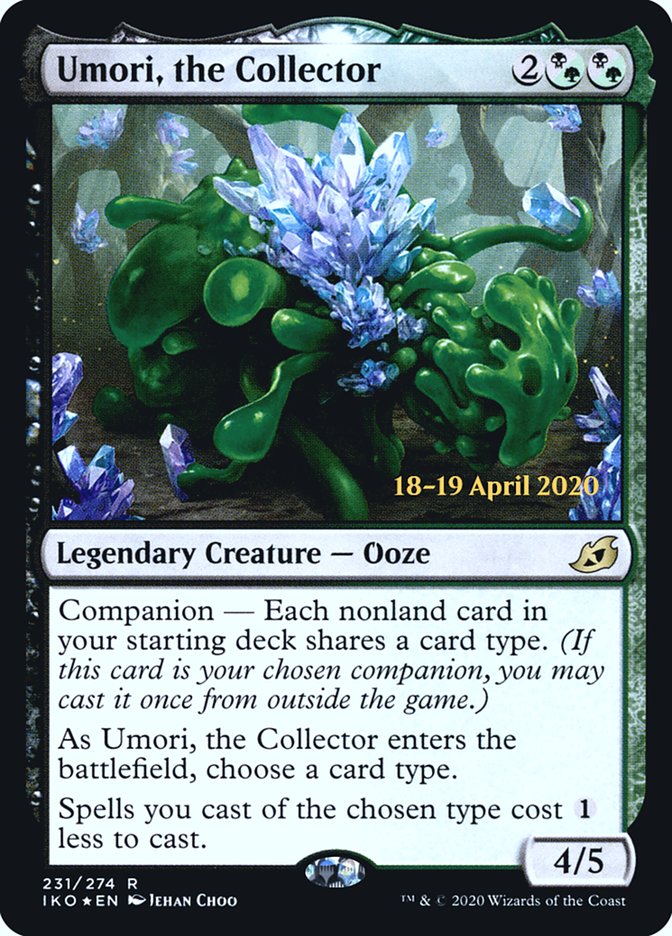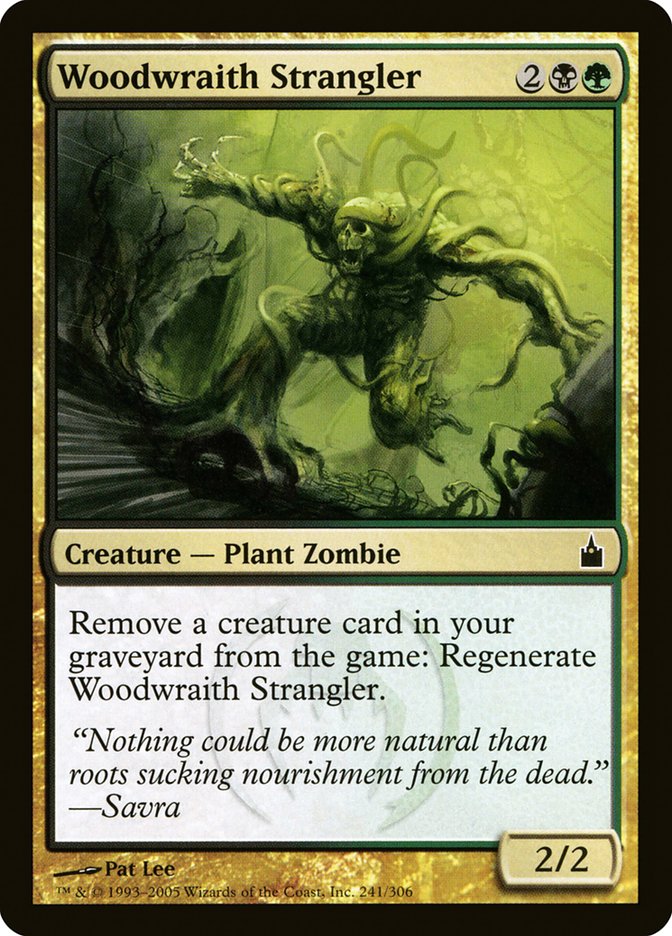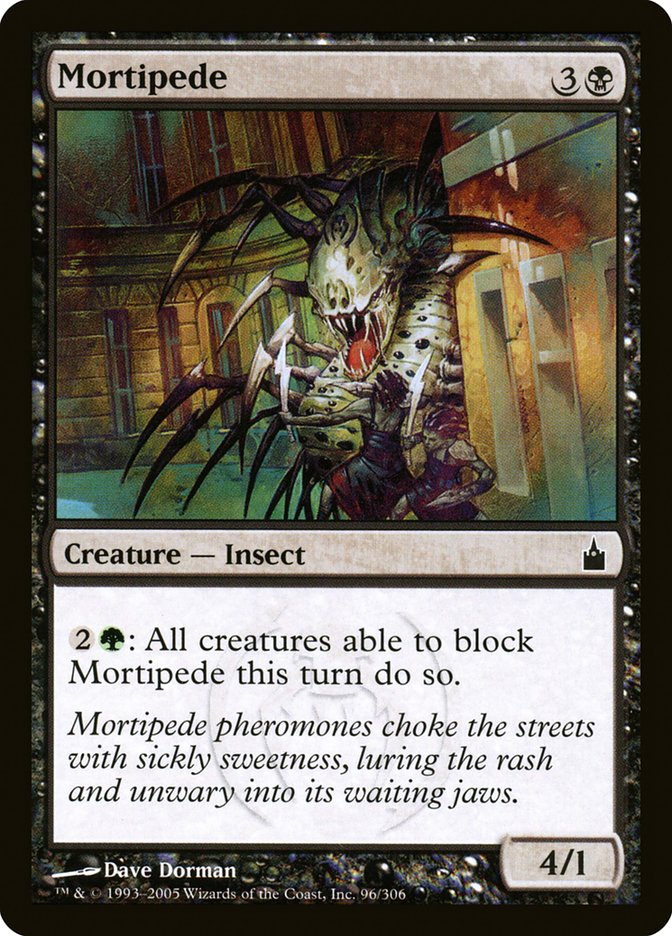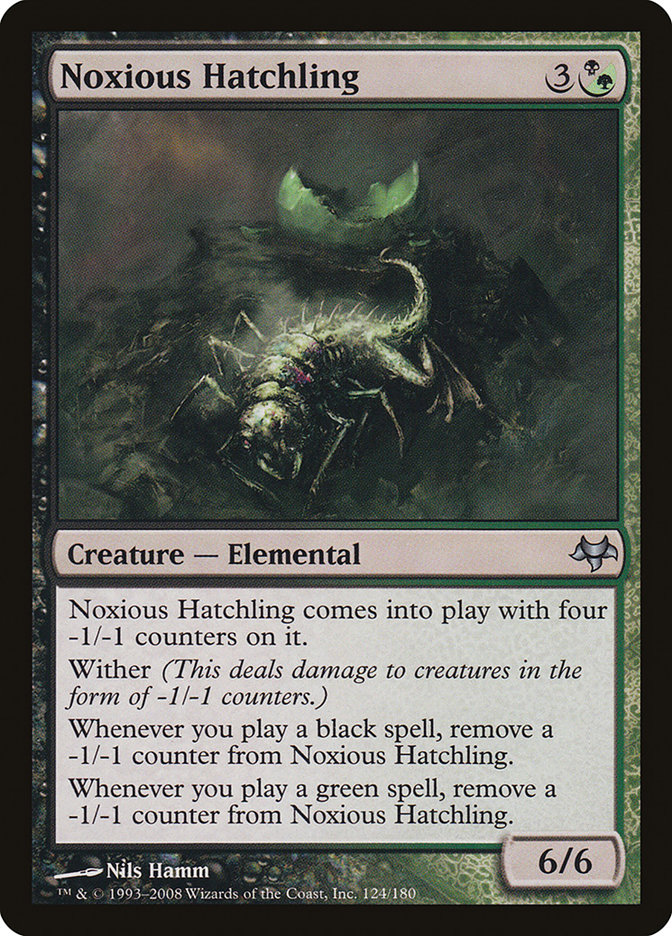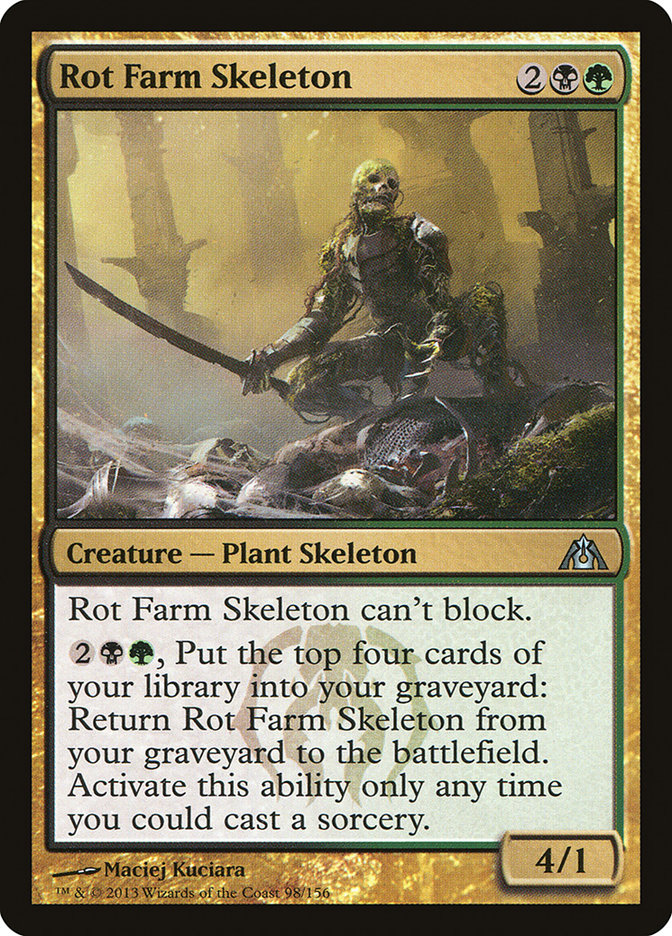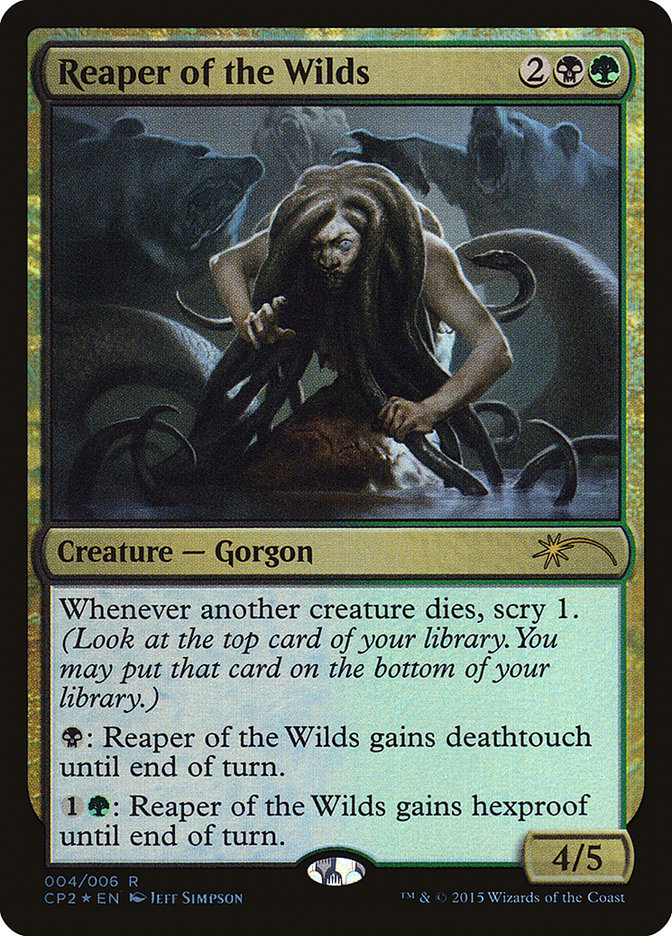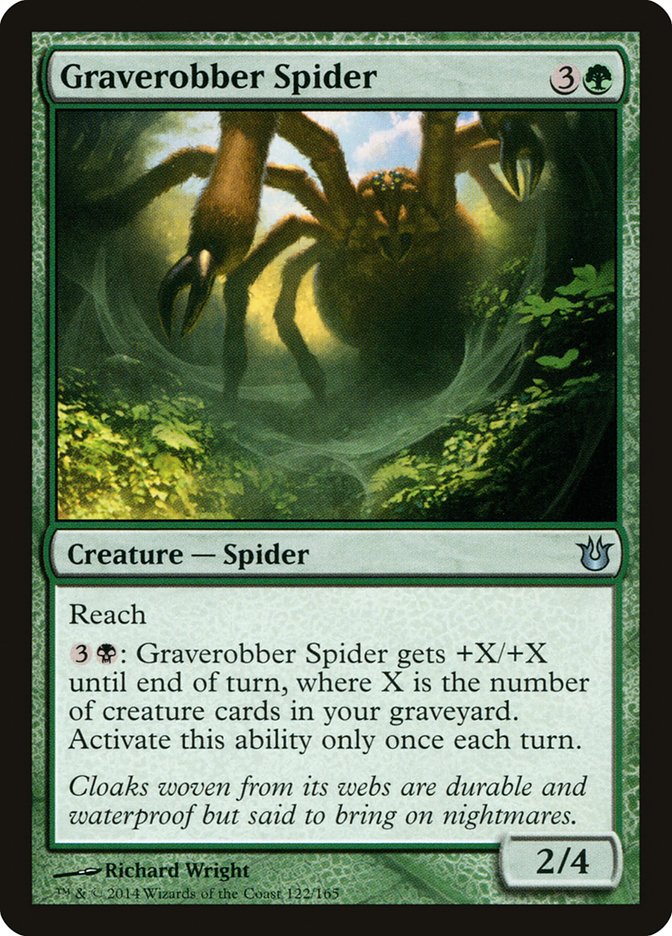Umori, the Collector MTG Card
| Card sets | Released in 9 setsSee all |
| Mana cost | |
| Converted mana cost | 4 |
| Rarity | Rare |
| Type | Legendary Creature — Ooze |
| Abilities | Companion |
| Power | 4 |
| Toughness | 5 |
Text of card
Companion — Each nonland card in your starting deck shares a card type. (If this card is your chosen companion, you may put it into your hand from outside the game for as a sorcery.) As Umori, the Collector enters the battlefield, choose a card type. Spells you cast of the chosen type cost less to cast.
Cards like Umori, the Collector
Umori the Collector carves its unique niche in the creature-heavy decks of Magic: The Gathering. When reflecting on cards with affinities towards specific card types, one might consider Mistform Warchief, which also reduces costs, but for creatures of a selected type each turn. The divergence is clear; Umori, as a companion, restricts a whole deck to a single card type but offers a consistent cost reduction for that type.
Occasionally, we might see kinship with Semblance Anvil—another cost-reducer. This artifact demands an exile sacrifice for the benefit, affecting only the types matching the exiled card. Unlike Umori, it’s not card type-restricted, yet it does lack Umori’s flexibility and adaptability, not to mention being a creature itself with the associated combat potential.
Comparing Umori to its peers, it’s evident that it suits a more dedicated deck strategy, as its deck-building constraints are balanced by a universal discount on creatures or whatever type chosen. This makes Umori particularly powerful in the right environment. Such specialization can unlock formidable synergies, reinforcing Umori the Collector’s unique role in deck utility.
Cards similar to Umori, the Collector by color, type and mana cost
Card Pros
Card Advantage: Umori the Collector boosts your hand by letting you choose a card type and reduce the casting cost of all cards of that type in your hand. This translates into savings which you could use to draw or play more cards, effectively escalating your options and pressure on the battlefield.
Resource Acceleration: This creature not only gives you the edge by lowering costs for a specific card type, but also accelerates your resource management. With reduced mana costs, you can deploy threats earlier or outpace opponents by playing multiple spells in a turn.
Instant Speed: While Umori itself is not at instant speed, the cost reduction can allow you to hold back mana for other spells in your deck that are. This can lead to more efficient use of your mana each turn, keeping opponents guessing and allowing you to react in the most opportunistic times.
Card Cons
Discard Requirement: Playing Umori the Collector necessitates a significant deck-building commitment. You’re bound by design to a singular card type which can be restrictive, and if your deck isn’t tailored to support this, you could find yourself at a disadvantage against more versatile opponents.
Specific Mana Cost: Umori’s activation cost is locked into a specific mana combination, demanding a dedicated mana base. This may deter players from including it in decks that cannot consistently generate the requisite colors, ultimately limiting its play across various formats.
Comparatively High Mana Cost: With a casting cost that sits on the higher end, especially for its effect, Umori might not be the most mana-efficient option. In fast-paced games, where tempo is crucial, the mana spent on casting Umori could be a setback, potentially leaving you vulnerable to opponents with lower cost, higher impact cards.
Reasons to Include Umori the Collector in Your Collection
Versatility: Umori the Collector offers a unique deck-building challenge and can shine in various enviroments. As a companion, Umori can mold your deck to synergize around a singular card type, which can lead to consistent and powerful game play.
Combo Potential: This card, by reducing the cost of creatures of the chosen type, can unlock numerous combo possibilities, particularly in creature-heavy decks. This cost reduction can lead to quicker and more efficient deployment of your game-winning threats.
Meta-Relevance: In a meta where flexibility and efficiency are key, Umori the Collector can prove a formidable choice. By streamlining your deck to one card type, you refine your strategy and increase your deck’s ability to reliably execute its game plan against a diverse range of opponents.
How to beat
Umori the Collector presents a unique challenge in the MTG realm with its ability to streamline a deck around a single card type. This leads to decks being built with a focus on creatures, instants, artifacts, or other card types, boosting their synergy. The key to conquering Umori lies in disrupting this harmony. Utilizing removal spells that can target Umori quickly and efficiently is crucial. Cards that allow you to exile or bounce Umori back to the owner’s hand disrupt the game plan, causing an opponent to lose momentum and giving you the upper hand.
Moreover, graveyard disruption is effective against Umori decks. Since Umori encourages the use of cards with similar types, graveyard interaction becomes a predictable strategy. Cards that exile cards from graveyards or restrict players from accessing them can throw a wrench in the synergy that Umori the Collector decks rely on.
It’s also important to adjust your play style and timing. If you’re aware that your opponent relies on the cost-reduction ability of Umori for a big turn, holding up mana for instant-speed interaction can make all the difference. In essence, staying flexible and employing targeted disruption can nullify the advantage that Umori the Collector might otherwise provide in a match.
BurnMana Recommendations
Enhancing your MTG strategy involves more than just understanding the pros and cons of cards like Umori the Collector. Assembling a deck that can utilize his cost-lowering ability will give you a competitive edge, but be mindful of the potential setbacks. Deck building with Umori presents a unique challenge that encourages focus and innovation. Our guides delve into synergies, strategic plays, and advanced tips to optimize your deck with Umori at the helm. Keen to expand your MTG horizons and adapt to ever-changing metas? Explore our resources and gain insights that will transform your approach to the game. Dive in and discover the paths to victory with Umori the Collector.
Where to buy
If you're looking to purchase Umori, the Collector MTG card by a specific set like Magic Online Promos and Ikoria: Lair of Behemoths Promos, there are several reliable options to consider. One of the primary sources is your local game store, where you can often find booster packs, individual cards, and preconstructed decks from current and some past sets. They often offer the added benefit of a community where you can trade with other players.
For a broader inventory, particularly of older sets, online marketplaces like TCGPlayer, Card Kingdom and Card Market offer extensive selections and allow you to search for cards from specific sets. Larger e-commerce platforms like eBay and Amazon also have listings from various sellers, which can be a good place to look for sealed product and rare finds.
Additionally, Magic’s official site often has a store locator and retailer lists for finding Wizards of the Coast licensed products. Remember to check for authenticity and the condition of the cards when purchasing, especially from individual sellers on larger marketplaces.
Below is a list of some store websites where you can buy the Umori, the Collector and other MTG cards:
 BUY NOW
BUY NOW BurnMana is an official partner of TCGPlayer
- eBay
- Card Kingdom
- Card Market
- Star City Games
- CoolStuffInc
- MTG Mint Card
- Hareruya
- Troll and Toad
- ABU Games
- Card Hoarder Magic Online
- MTGO Traders Magic Online
See MTG Products
Printings
The Umori, the Collector Magic the Gathering card was released in 4 different sets between 2020-04-24 and 2023-04-21. Illustrated by 2 different artists.
| # | Released | Name | Code | Symbol | Number | Frame | Layout | Border | Artist |
|---|---|---|---|---|---|---|---|---|---|
| 1 | Magic Online Promos | PRM | 80813 | 2015 | Normal | Black | Jehan Choo | ||
| 2 | 2020-04-24 | Ikoria: Lair of Behemoths Promos | PIKO | 231s | 2015 | Normal | Black | Jehan Choo | |
| 3 | 2020-04-24 | Ikoria: Lair of Behemoths | IKO | 231 | 2015 | Normal | Black | Jehan Choo | |
| 4 | 2020-04-24 | Ikoria: Lair of Behemoths | IKO | 358 | 2015 | Normal | Black | Jehan Choo | |
| 5 | 2020-04-24 | Ikoria: Lair of Behemoths Promos | PIKO | 231p | 2015 | Normal | Black | Jehan Choo | |
| 6 | 2023-04-21 | Multiverse Legends | MUL | 62 | 2015 | Normal | Borderless | Daniel Warren Johnson | |
| 7 | 2023-04-21 | Multiverse Legends | MUL | 127 | 2015 | Normal | Black | Jehan Choo | |
| 8 | 2023-04-21 | Multiverse Legends | MUL | 192 | 2015 | Normal | Borderless | Daniel Warren Johnson | |
| 9 | 2023-04-21 | Multiverse Legends | MUL | 192z | 2015 | Normal | Borderless | Daniel Warren Johnson |
Legalities
Magic the Gathering formats where Umori, the Collector has restrictions
| Format | Legality |
|---|---|
| Historicbrawl | Legal |
| Historic | Legal |
| Legacy | Legal |
| Oathbreaker | Legal |
| Gladiator | Legal |
| Pioneer | Legal |
| Commander | Legal |
| Modern | Legal |
| Vintage | Legal |
| Duel | Legal |
| Explorer | Legal |
| Penny | Legal |
| Timeless | Legal |
Rules and information
The reference guide for Magic: The Gathering Umori, the Collector card rulings provides official rulings, any errata issued, as well as a record of all the functional modifications that have occurred.
| Date | Text |
|---|---|
| 2020-04-17 | Artifact, creature, enchantment, instant, planeswalker, and sorcery are card types. Supertypes (such as legendary) and subtypes (such as Ooze) are not. |
| 2020-04-17 | Before shuffling your deck to become your library, you may reveal one card from outside the game to be your companion if your starting deck meets the requirements of the companion ability. You can't reveal more than one. It remains revealed outside the game as the game begins. |
| 2020-04-17 | Effects that reduce the generic mana cost of a spell (such as that of Umori) can't reduce that spell's colored mana requirements. |
| 2020-04-17 | If more than one player wishes to reveal a companion, the starting player does so first, and players proceed in turn order. Once a player has chosen not to reveal a companion, that player can't change their mind. |
| 2020-04-17 | If you reveal a companion outside the game, for as long as it remains there, you may pay any time you could cast a sorcery (that is, you have priority during your main phase and the stack is empty). Once you do, you put it into your hand and behaves like any other card you've brought into the game. For example, if it's discard, countered, or destroyed, it's put into your graveyard, remaining in the game. This is a change from previous rules. |
| 2020-04-17 | Land cards in your deck may have any number of additional types that may be shared with other cards or not. |
| 2020-04-17 | The companion ability has no effect if the card is in your starting deck and creates no restriction on putting a card with a companion ability into your starting deck. For example, Zirda may be in your starting deck even if your other permanent cards don't all have activated abilities. |
| 2020-04-17 | The companion's other abilities apply only if the creature is on the battlefield. They have no effect while the companion is outside the game. |
| 2020-04-17 | The requirements of the companion ability apply only to your starting deck. They do not apply to your sideboard. |
| 2020-04-17 | To satisfy Umori's companion requirement, there must be one card type that each nonland card in your starting deck has. For example, if every nonland card is an artifact creature, enchantment creature, or creature, it is satisfied; but if you have an artifact creature, an artifact, and a creature, it is not satisfied. |
| 2020-04-17 | You may have one companion in the Commander variant. Your deck, including your commander, must meet its companion requirement. Your companion is not one of your one hundred cards. |
| 2020-04-17 | Your companion begins the game outside the game. In tournament play, this means your sideboard. In casual play, it's simply a card you own that's not in your starting deck. |
| 2020-06-01 | If you reveal a companion outside the game, for as long as it remains there, you may pay any time you could cast a sorcery (that is, you have priority during your main phase and the stack is empty). Once you do, you put it into your hand and behaves like any other card you've brought into the game. For example, if it's discarded, countered, or destroyed, it's put into your graveyard, remaining in the game. This is a change from previous rules. |
| 2020-06-01 | Once you put your companion into your hand, it behaves like any other card you’ve brought into the game. For example, if it’s countered or destroyed, it’s put into your graveyard, remaining in the game. |
| 2020-06-01 | Paying to put your companion into your hand is a special action. It doesn't use the stack and players can't respond to it. Once you take this action, you may cast that card if it's legal to do so before any other player can take actions. |
| 2020-06-01 | Wizards of the Coast has issued functional errata for the Companion mechanic. Instead of casting companions from outside the game: Once per game, any time you could cast a sorcery (during your main phase when the stack is empty), you can pay to put your companion from your sideboard into your hand. This is a special action, not an activated ability. It happens immediately and can’t be responded to. It can’t be countered or stopped by cards like Phyrexian Revoker. For more information please see https://magic.wizards.com/en/articles/archive/news/june-1-2020-banned-and-restricted-announcement |
